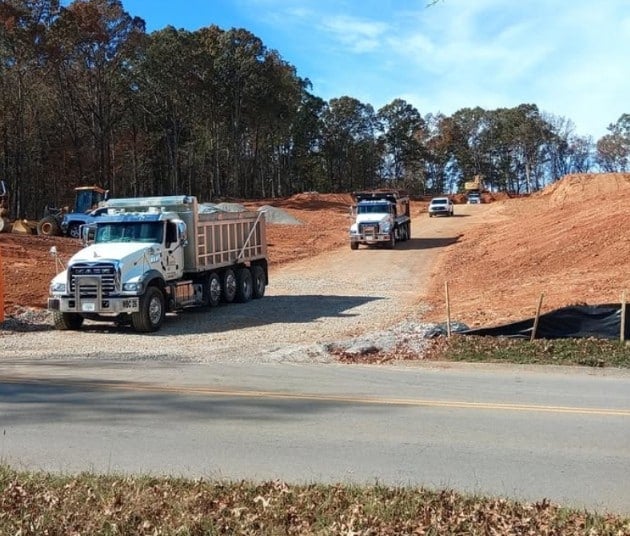Knoxville, Tenn. Feb. 20, 2026 – For nearly a decade, SouthEast Bank has stood alongside Loudon County Habitat for Humanity (LCHFH) in a shared mission to build safe, affordable homes and create opportunities for families to thrive. Today, the partnership continues with significant investment in LCHFH’s newest community, Hilltop Hideaway, which will provide homes for 35 families, including LCHFH’s first-ever duplex units.
In addition to sponsoring one of the first homes built in Hilltop Hideaway, SouthEast Bank stepped up early with a $150,000 pledge as the neighborhood sponsor to help meet the cost of early groundwork for the overall development.
“SouthEast Bank was one of the first organizations to invest in Hilltop Hideaway and commit to making it a reality,” said Rachel Rendon, development director for Loudon County Habitat for Humanity. “The early investment helped us overcome major infrastructure challenges and move forward with construction of these homes.”
LCHFH’s groundbreaking for Hilltop Hideaway took place in April 2025, and the project is expected to take several more years to complete, with selected families able to move in as units are completed.
SouthEast Bank’s commitment to LCHFH began in 2016 and has expanded year after year. The bank has supported homeowner education courses, which every partner family completes before receiving their keys. The multi-week classes teach essential skills from budgeting and financial literacy to seasonal home maintenance, ensuring families are prepared for long-term success as homeowners.
In addition, SouthEast Bank has been a driving force behind Farm to Families, an annual fundraising event benefiting LCHFH’s mission. Held at RiverView Family Farm, the event is an evening of locally sourced cuisine prepared by award-winning chefs, live music and fellowship. Proceeds directly fund new home construction and critical repair projects for seniors and individuals with disabilities. SouthEast Bank began sponsoring Farm to Families in 2018 and became the title sponsor in 2022, signaling its commitment to supporting local families in the community under this cause.
“LCHFH is making real change, impacting not only the physical landscape of Loudon County, but also the lives of countless families for generations to come,” says Jimmy Dalton, Community Reinvestment Officer at SouthEast Bank. “By working together, we amplify our shared mission to meet families where they are and give them the tools to build generational wealth.”
Since its founding, LCHFH has built 126 new homes and completed 165 critical repairs, helping families achieve stability and independence. SouthEast Bank’s contributions have supported seven new homes so far, not including the upcoming Hilltop Hideaway home. Together, their work not only provides access to homeownership but also changes the trajectory of local families by fostering long-term financial security.
About SouthEast Bank
SouthEast Bank is a community bank headquartered in Farragut, Tennessee. With assets in excess of $3.3 billion, SouthEast Bank offers a full suite of loan and deposit products and services for families and businesses throughout Middle and East Tennessee, including its specialty consumer loan division, ELFI, which specializes in educational loan programs. SouthEast Bank is committed to the financial success of its customers, employees, and communities. Local decision-making and community involvement have been the driving successes of SouthEast Bank since its inception. Member FDIC.
For more information, visit southeastbank.com or call 1-844-732-2657.
Media Contact:
Sarah Holder
Content Strategist
sholder@southeastbank.com
865-310-0657




